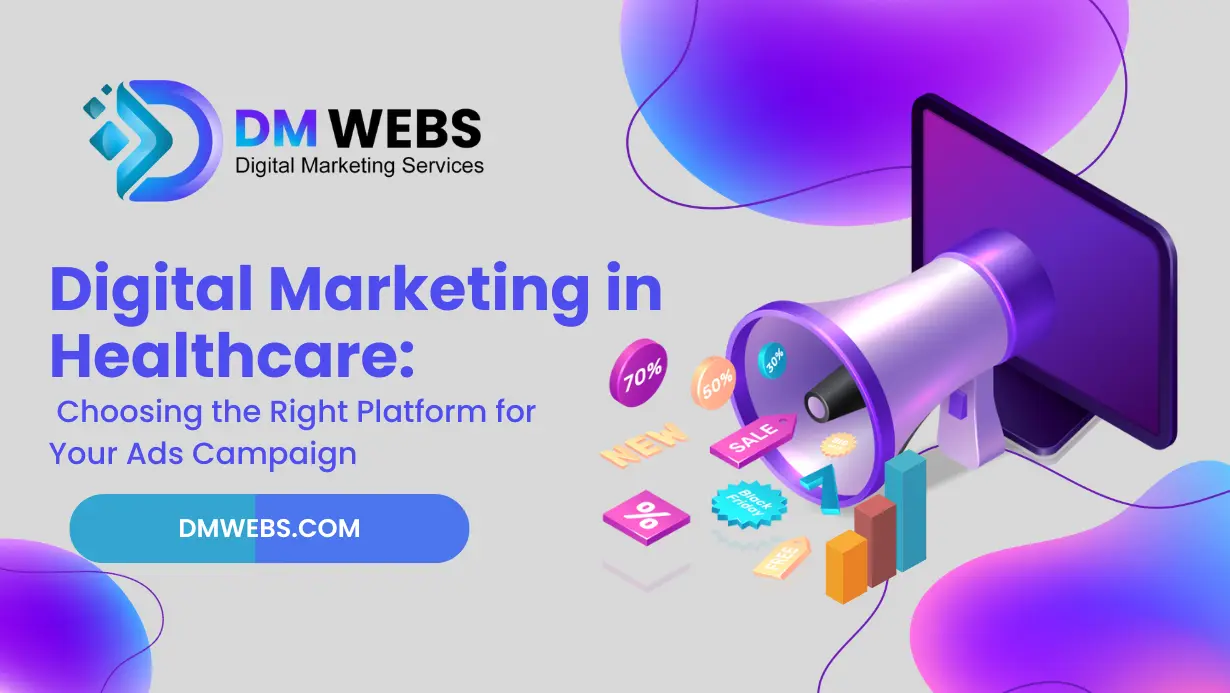
In today’s world, digital marketing has become an indispensable tool for businesses across all sectors. The healthcare industry is no exception. For healthcare providers aiming to increase visibility, attract more patients, and promote health services effectively, choosing the right digital marketing platform is crucial. This article explores the importance of digital marketing in healthcare, focusing on the strategic choice between social media platforms like Facebook and Instagram, and search-based advertising such as Google Ads.
Introduction to Digital Marketing in Healthcare
Digital marketing is the heartbeat of modern promotional strategies across industries, including healthcare. It leverages online platforms to reach a broader audience in a more targeted and efficient way than traditional marketing methods. For healthcare providers, digital marketing not only helps in attracting new patients but also in communicating important health messages and managing public perception about their services.
Why Digital Marketing is Essential for Healthcare Providers
Digital marketing is more than just an optional strategy for healthcare providers; it’s a necessity in an increasingly connected world. Patients frequently use the internet to search for health information, seek out medical services, and make informed choices about their healthcare providers. By implementing a robust digital marketing strategy, healthcare providers can meet potential patients right where they are: online.
Choosing the Right Platform for Your Healthcare Ads Campaign
When planning an advertising campaign, the choice of platform can significantly impact its success. In healthcare marketing, the primary contenders are often social media channels (like Facebook and Instagram) and search engines (like Google through Google Ads). Each platform offers unique advantages and can be used effectively, depending on the campaign’s goals.
Social Media Marketing: Facebook and Instagram
Social media platforms are excellent for building brand awareness and engaging with potential patients on a more personal level. Here’s why they might be the right choice for your healthcare ads:
- Targeted Demographics: Facebook and Instagram allow for detailed demographic targeting, including age, interests, location, and more. This makes it easier to reach specific groups who may need your healthcare services.
- Visual Engagement: Both platforms are highly visual. This means you can use images and videos to demonstrate services, share patient testimonials, and post informative health content that engages users.
- Community Building: Social media fosters community, providing a space for healthcare providers to create supportive networks where patients can interact, share experiences, and provide feedback.
Search Engine Advertising: Google Ads
Google Ads operates on a different model, which is search-based and intent-driven. Here’s why Google Ads might be the best platform for your healthcare advertising:
- High Intent: People searching for healthcare information or services on Google already have a clear intent. This makes Google Ads highly effective for capturing demand where there is a direct need.
- Wide Reach: Google’s vast reach can help healthcare providers be seen by potential patients at the exact moment they are searching for health-related queries.
- Cost-Effective: With pay-per-click (PPC) advertising, you only pay when someone clicks on your ad. This can be more cost-effective, especially for specific healthcare niches.
Difference Between Social Media and Google Ads
The key difference lies in the type of engagement and the intent of the audience. Social media platforms are best for creating awareness and engagement through content that might not necessarily be sought out by the audience. In contrast, Google Ads targets users who are actively searching for specific healthcare services or information, indicating immediate need or interest.
Conclusion
In conclusion, both social media platforms like Facebook and Instagram and search engines like Google can be highly effective for healthcare digital marketing. The choice depends on the specific objectives of the campaign, whether it’s building brand awareness, engaging with a community, or capturing high-intent searches for immediate conversions. By understanding the strengths of each platform, healthcare providers can tailor their digital marketing strategies to meet their goals and connect more effectively with their audience.
Effective digital marketing strategies are essential for modern healthcare providers looking to thrive in a digital-first world. By choosing the right platforms and tailoring strategies accordingly, healthcare businesses can enhance their online presence and connect meaningfully with their patients.